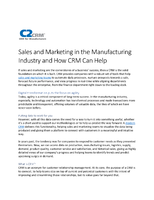ASTM Manual covers tests for petroleum products.
Press Release Summary:
Manual 1, Significance of Tests for Petroleum Products includes latest analytical procedures and specifications for vast range of petroleum products. All tests in Manual 1 are designed to measure product properties so that quality of that product may be described. Book also cross-references and lists ISO, API, OECD, IP, EPA, DIN, and EPS methods, where applicable. Topics addressed include sampling techniques, fuel oxygenates, automotive engine oils, and lubricant base fluids.
Original Press Release:
New Edition of ASTM International Manual on Tests for Petroleum Products
W. CONSHOHOCKEN, Pa., -ASTM International has released the latest edition of Manual 1, Significance of Tests for Petroleum Products, which includes the latest analytical procedures and specifications for a vast range of petroleum products.
All of the tests in Manual 1 are designed to measure product properties so that the "quality" of that product may be described. The book also cross-references and lists ISO, API, OECD, IP, EPA, DIN and EPS methods, where applicable. Topics addressed include sampling techniques, fuel oxygenates, automotive engine oils, lubricant base fluids and more.
For this new edition, all chapters except one have been updated to reflect new specifications and testing methods, and three new chapters have been added to more fully reflect today's new products and new test procedures. They are: biodiesel fuels, synthetic fuel oils and determination of inorganic species in petroleum products.
Manual 1, Significance of Tests for Petroleum Products, is available in print (350 pages; soft cover 8.5 x 11"; stock # MNL1-8TH; ISBN: 978-0-8031-7001-8) and electronically (stock # MNL1-8TH-EB; ISBN: 978-0-8031-8422-0) for $117.
To purchase ASTM publications, search by stock number on the ASTM Web site (www.astm.org), or contact ASTM Customer Relations (phone: 610-832-9585; service@astm.org).
ASTM International is one of the largest international standards development and delivery systems in the world. ASTM International meets the World Trade Organization (WTO) principles for the development of international standards: coherence, consensus, development dimension, effectiveness, impartiality, openness, relevance and transparency. ASTM standards are accepted and used in research and development, product testing, quality systems and commercial transactions.




